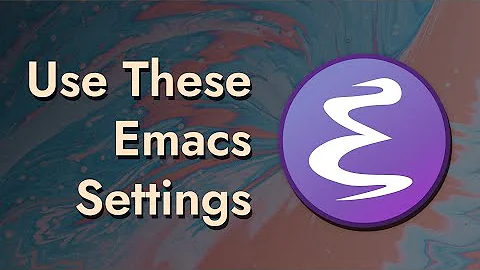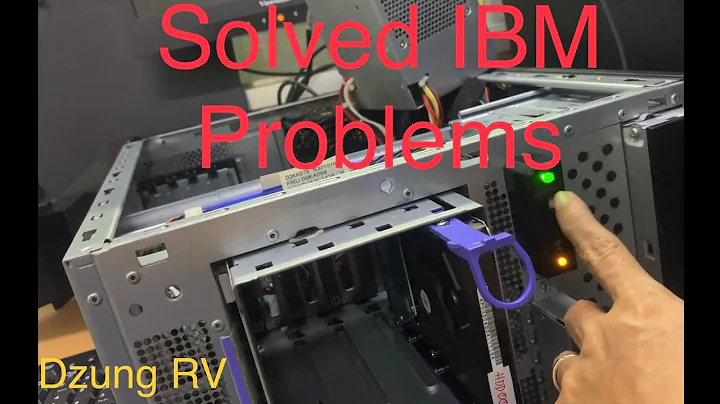Emacs 24 Package System Initialization Problems
Solution 1
The packages that you install with package.el are activated by default after your .emacs is loaded.
To be able to use them before the end of your .emacs you need to activate them by using the commands:
(setq package-enable-at-startup nil)
(package-initialize)
Solution 2
It's worth noting why Emacs defers the package initialization:
See C-hig (emacs) Package Installation RET, and in particular:
The reason automatic package loading occurs after loading the init file is that user options only receive their customized values after loading the init file, including user options which affect the packaging system. In some circumstances, you may want to load packages explicitly in your init file (usually because some other code in your init file depends on a package). In that case, your init file should call the function
package-initialize. It is up to you to ensure that relevant user options, such aspackage-load-list(see below), are set up prior to thepackage-initializecall. You should also setpackage-enable-at-startuptonil, to avoid loading the packages again after processing the init file. Alternatively, you may choose to completely inhibit package loading at startup, and invoke the commandM-x package-initializeto load your packages manually.
So provided you make sure that your init file takes care of any non-default values you want for variables in the package customization group1 before calling package-initialize -- and that you maintain this approach whenever customizing the package library config -- it should be okay to do this.
Alternatively, because after-init-hook runs after the standard package initialization has completed, you could use that to evaluate any init code which depends upon packages. So instead of calling package-initialize directly in init.el, you could instead write:
(add-hook 'after-init-hook 'my-after-init-hook)
(defun my-after-init-hook ()
;; do things after package initialization
)
putting the code requiring the initialized package system within that function.
YMMV.
(n.b. I haven't tested the after-init approach, as I don't really use package.el; but I did confirm the sequence of events in the start-up code, so I believe it will work as described.)
1 M-x customize-group RET package RET
Related videos on Youtube
λ Jonas Gorauskas
"The lyf so short, the craft so long to lerne." - Chaucer Blog = The Standard Output Code = Github Twitter = @gorauskas
Updated on June 14, 2022Comments
-
λ Jonas Gorauskas about 2 years
It seems to me that the new Package system that is built-in on Emacs 24 has some flaws when it comes to properly loading and initializing the installed packages.
Recently, I upgraded to Emacs 24.1.1 which was realeased on 6/10/2012 and I have been trying to use the built-in package system and have installed several packages using it, but they all have a similar problem related to autoload and initialization.
For example, I use a package called
smexwhich provides enhancements for using theM-xchord. It requires you to define a key forM-x, so I added(global-set-key (kbd "M-x") 'smex)in myinit.elfile. But after starting emacs I press theM-xchord and I get the message "Symbol's function definition is void: smex" ... If I also put(require 'smex)in my init.el file I get the error message "File error: Cannot open load file, smex"Adding the location of smex to the load-path variable makes it work as expected, however, that seems to defeat the whole purpose of having a package system in the first place...
Any thoughts? Is there a better way or do we live with this limitation for now?
-
Erik Kaplun over 10 yearsI think the answer by phils is much more valuable and even correct than this one; he also explains why.
-
Erik Kaplun over 10 yearsI've no idea why this answer has received so few votes and has not been accepted... In light of what you've explained, the solution offered in the accepted answer even begins to seem like a hack.
-
Nicolas Dudebout over 10 years@ErikAllik, downvoting is to report that information is inaccurate. You should only have upvoted the other more accurate answer. To understand why this answer was accepted, just look at the dates. It was written 15 months before the other one.
-
Erik Kaplun over 10 yearsIt was only to balance the scores a little bit—a possibly inappropriate act :)
-
 Veritas almost 9 yearsGreat answer! Do I still need to require my packages after loading them with package-initialize?
Veritas almost 9 yearsGreat answer! Do I still need to require my packages after loading them with package-initialize? -
phils almost 9 yearsVeritas: It varies by package. Well-written packages will typically include autoload cookies (which are processed by the package manager) for important commands, in which case you are unlikely to need to
requirethem (which in turn will improve your start-up time). Packages with no autoloads will still need to berequired (or loaded somehow, at any rate).






